Under Relentless Israeli Bombing and Lacking Everything, a Gaza Hospital Is Triaging Genocide
Inside Al-Aqsa Martyrs Hospital in central Gaza, Palestinian doctors are losing patients they could have saved because of shortages of supplies and medicine
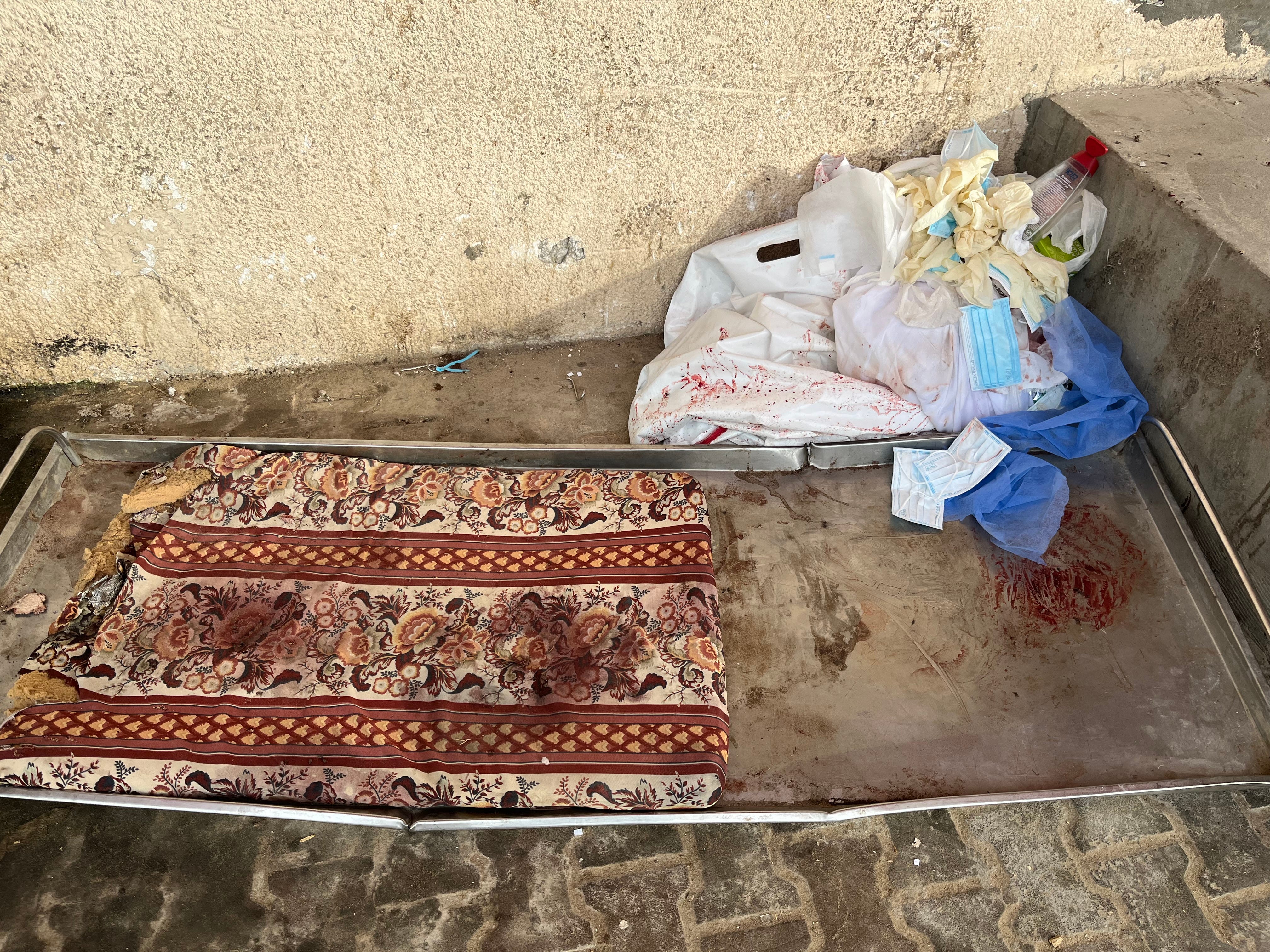
DEIR AL-BALAH, GAZA—Al-Aqsa Martyrs Hospital in Deir al-Balah is a place of concentrated horror and suffering. There is not a moment of tranquility here. A constant stream of ambulances rush in loaded with casualties—mostly crushed and charred bodies and dismembered children. The wards echo with the screams of mothers. Sobbing toddlers wander the halls looking for family members. Funeral prayers are held every hour, barely keeping up with the rising number of dead.
The hospital morgue is a charnel house—corpses are piled on top of one another. A thin river of blood flows outside, winding beneath the feet of relatives gathered for a final glance at their loved ones. As they carry mangled bodies to try and find an empty grave in the inundated cemetery nearby, their overlapping wails of grief fill the air. Inside, survivors stand bereft against the walls, praying for an end to the carnage—or for an Israeli airstrike to finally kill them and remove them from this place.
The area around the medical facility is continuously bombed. Overnight, Israel struck tents on the edge of the hospital compound, wounding three people who were seeking shelter—like thousands of other displaced residents. Outside Nasser hospital in Khan Younis, Israel bombed a media tent, setting it ablaze, killing journalist Hilmi al-Faqawi and another civilian, and wounding six other reporters. Screaming colleagues captured haunting footage of the incident, with journalist Ahmed Mansour, sitting motionless as he was engulfed by the flames before they were able to pull him out, critically injured. Two days earlier, another airstrike hit near the gate of Al-Aqsa hospital, killing my cousin Salman Abed and his son, Mahmoud. Then on Sunday, a separate airstrike in Khan Younis killed 10 more members of my family, including my aunt, another cousin, her husband and six children.
Like all other medical facilities still standing in Gaza, Al-Aqsa hospital is barely functioning. Bloodstained gowns and bandages litter the ground. Torn blankets lie atop twisted gurneys.
Dr. Izzeddin Shahin, a 31-year-old resuscitation and ICU doctor, struggles to provide care amid severe shortages of basic medical supplies as a result of Israel’s blockade. “Two surgeons, two ventilators, and four ICU beds are all we have at the hospital at the moment. We also lack IV stands, blood warmers, syringe pumps, and life-saving medications like adrenaline,” Shahin told Drop Site. “Patients always ask us for medical mattresses and anticoagulants, which we can’t find,” he added. “We are short of gauze and cotton, as well as sterilisers and alcohol, so we occasionally resort to utilising menstrual pads as gauze, beginning our procedures in non-sterilized rooms while wearing only gloves. This is why some of the wounded eventually die.”
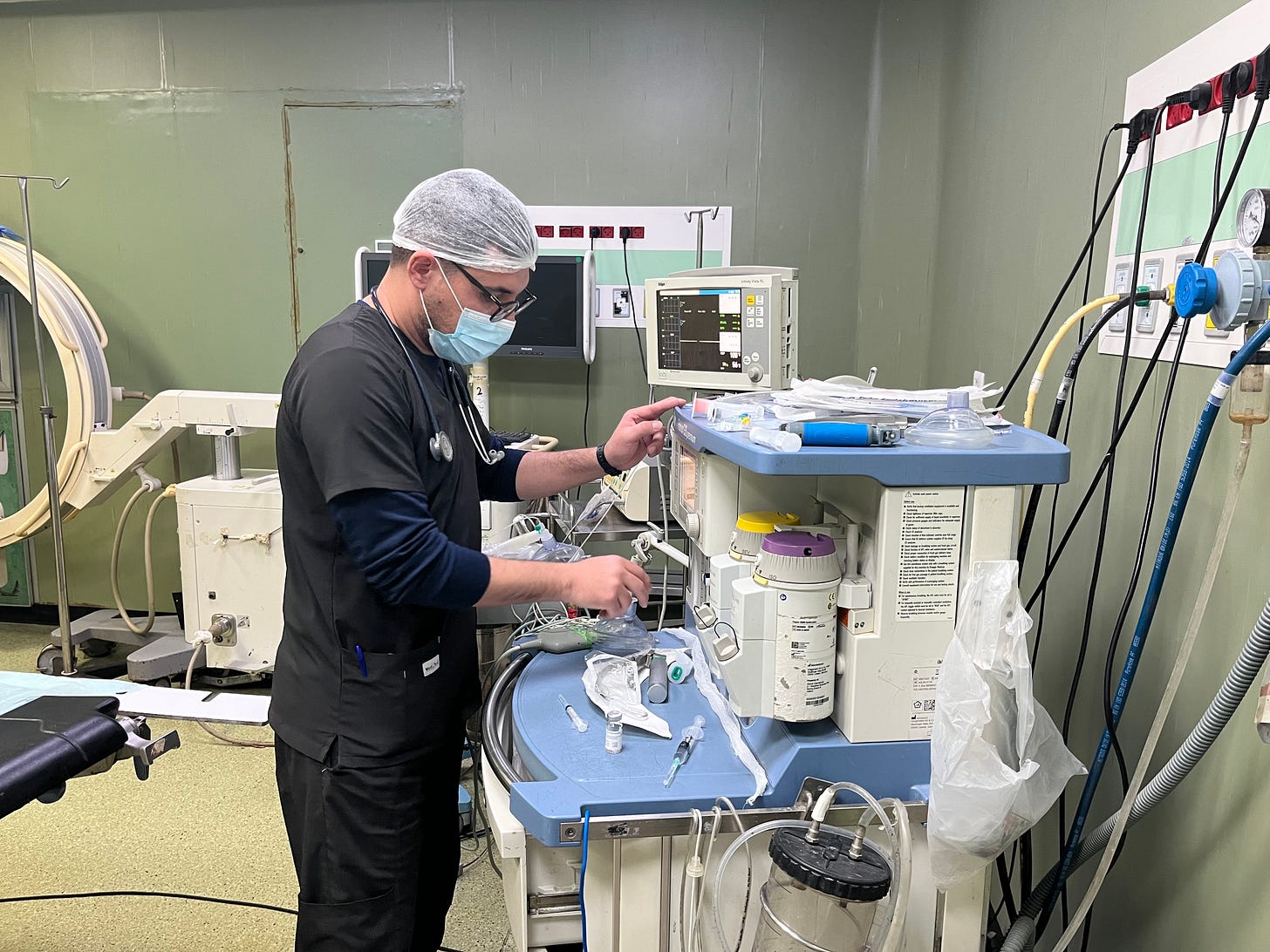
In a statement published on Monday to mark World Health Day, the Ministry of Health in Gaza said that 37 percent of all essential medications and 59 percent of medical supplies have been completely depleted and are “at zero.”
“The Gaza Strip is without medicine, and serious and catastrophic repercussions will be added to the deteriorating health and humanitarian situation,” the ministry said. Hospitals are running on generators, the statement continued, which risk shutting down due to shortages of fuel and spare parts. After Israeli forces destroyed CT and MRI equipment, patients are now deprived of diagnostic imaging services. Meanwhile, 40 percent of primary care medications and 54 percent of cancer and blood disease medications are out of stock, disrupting treatment protocols.
Shahin recounted treating a 9-year-old boy, who arrived at the hospital last week with severe open wounds to his abdomen and thigh, explosive burns and multiple fractures to his pelvis as the result of an Israeli airstrike.
“We did our best to treat him and save his life. We gave him a blood transfusion in the operations room, and he was then taken to the ICU to undergo surgery, but he unfortunately succumbed to his wounds half an hour later,” Shahin said. “His case was very critical and he needed a variety of medical supplies the hospital is lacking, including proper stitches, bone mills, and enough blood units. This is why such cases die.”
Shahin recounted another case of a child, an 11-year-old, who arrived with leg fractures, shrapnel in his stomach and burns over 60 percent of his body. “The shrapnel tore his bowels and slashed his liver. Although we managed to control the internal bleeding, the child’s condition deteriorated, and he passed away a few hours later because of the acute scarcity of life-saving medicines and medical supplies,” Shahin said.
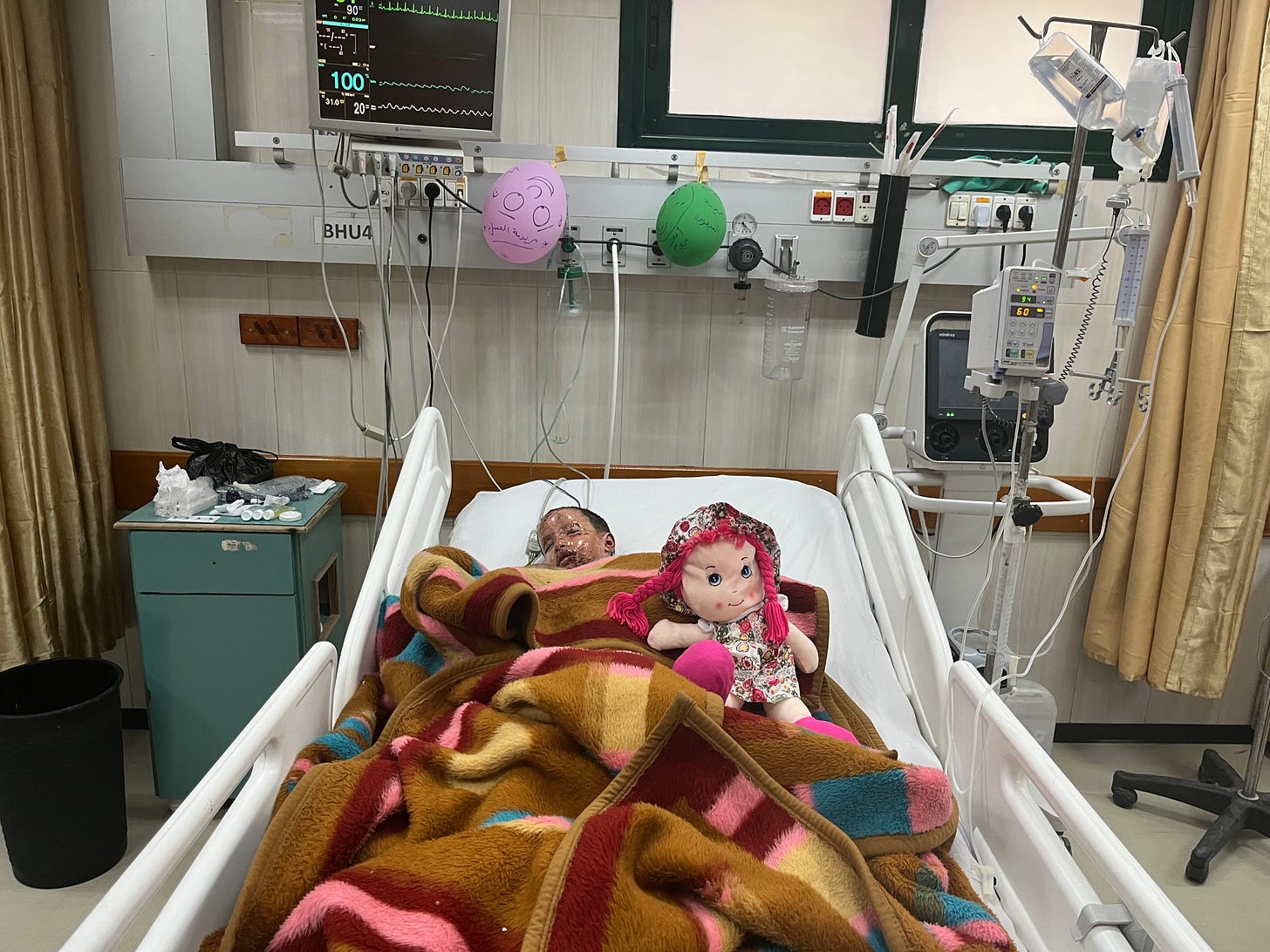
Another physician at Al-Aqsa hospital, Dr. Amro Al-Talaqa, is a 29-year-old general practitioner who works in the ICU. He received three critical cases a few days ago, he told Drop Site, who succumbed to their wounds shortly after being admitted to intensive care.
“During the past thirty days, we have lost around forty patients due to the shortage of medical supplies and equipment inside the ICU, which now has five patients who may lose their lives at any second,” Al-Talaqa said. “Many die after being admitted to the ICU because of the severe shortages in things like special medical solutions and anesthetics for traumatic head injuries and treatment for children in general. We are also in desperate need of ventilators, monitors, scissors, and scalpels.”
Al-Talaqa continued: “The hospital can’t offer daily dressing changes for the wounded. Some patients need at least eight crepe bandages but only get two to three each day. This poses a threat to patients and causes viral infections to proliferate in the ICU. The probability of death sometimes reaches up to 90 percent because we don’t have access to these basic needs or space to receive more cases, which forces us to sometimes put two patients on a single bed to provide them with life-saving oxygen.”
He pointed to Jannah, a 12-year-old girl in the ICU with an acute lung contusion who required intubation and surgery, though medical supplies were lacking. “Most of the cases we receive are head injuries and gunshot wounds to the chest that need to stay in the ICU for 30 to 60 days to recover,” he said. He stressed that most of the children they treat have no surviving family members and need mental health care to support their full rehabilitation. “We literally lack everything at the hospital,” he said.
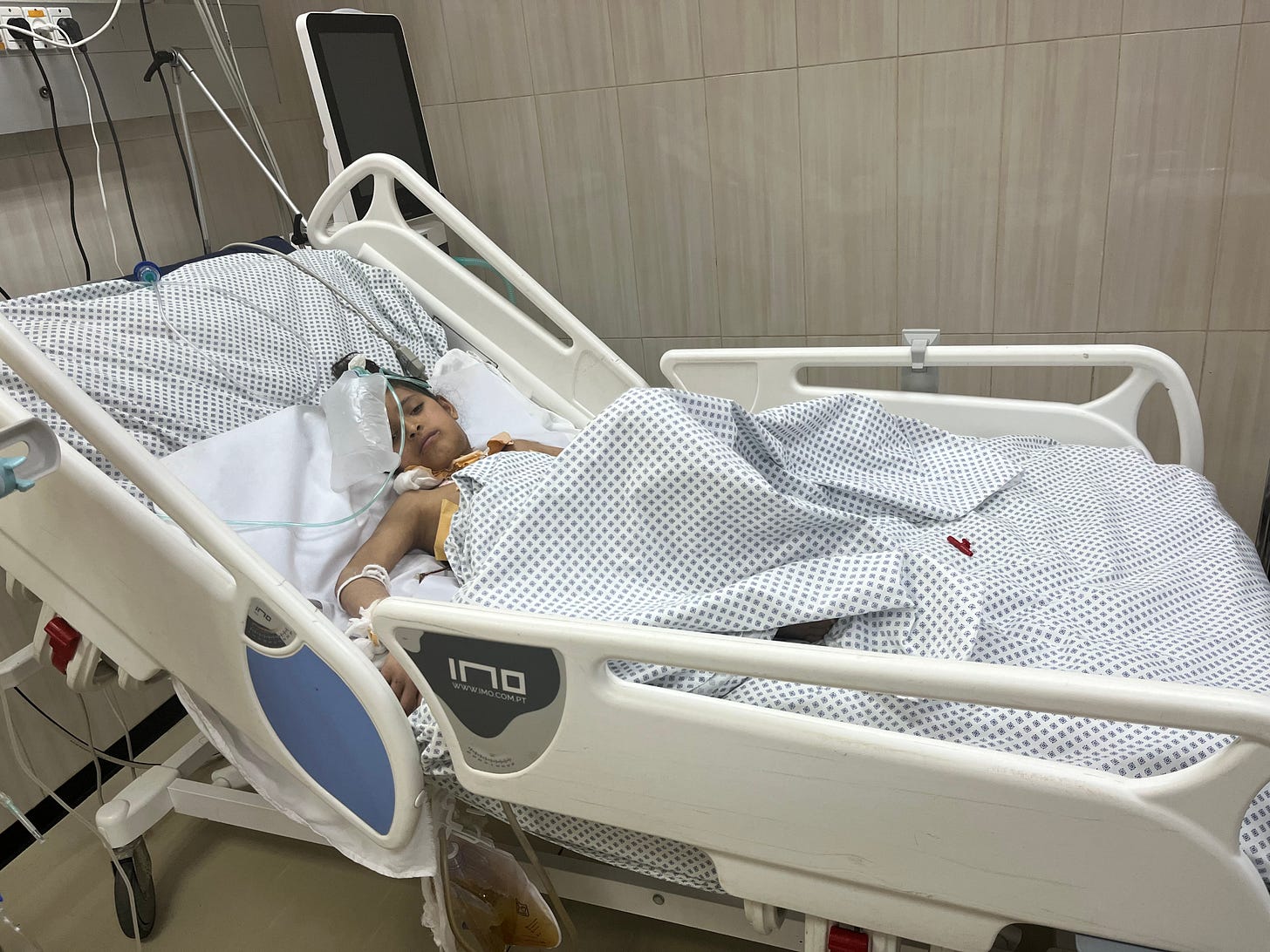
In a nearby ward lay Ismail Abu-Lebda, a 37-year-old patient who has been hospitalized at Al-Aqsa Hospital since the onset of Israel’s genocidal war on Gaza, when airstrikes in October 2023 annihilated their residential block. That attack killed two of his daughters and left him with puncture wounds and complex multiple leg fractures.
“There is a list of many medicines and antibiotics doctors prescribed to me that I should take but are not available,” Abu-Lebda said. “Consequently, I take bad substitutes like Rocephin and Paracetamol that do little to alleviate my suffering. I have to take bone-weakening Declophen to sleep. I also take other medicines to try and cope with the pain. Even the device that functions to pump the clotted blood out from between my crushed bones is not available here. I also need good nutrition, specifically meat and fish, but I only eat canned food of a horrible quality once or twice a day, which increases my complications over time,” he said, wincing in pain.
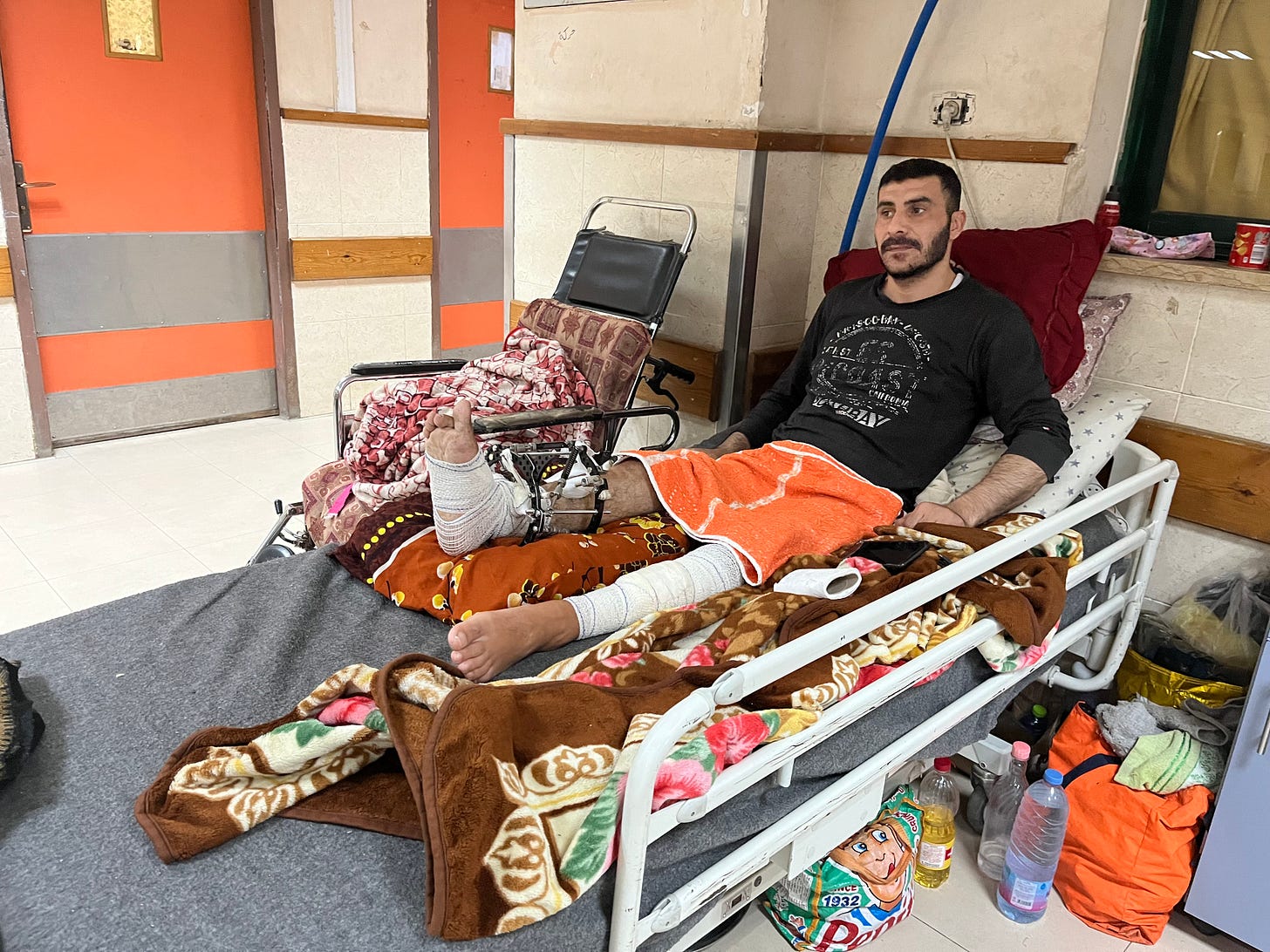
The medical director of Al-Aqsa hospital, Dr. Eyad Al-Jabri, warned that the hospital is at risk of closing down completely due to a lack of fuel and medical supplies. “We have two generators—the first has run out of fuel and the second is on its last few liters,” Al-Jabri told Drop Site. “We have to prioritize wards at the hospital and doctors work on cases that have a chance to survive since the hospital’s capacity is insufficient and the shortages of supplies force us to make these difficult decisions. We have scant sources that we only use in a few very urgent cases.”
Al-Jabri said that, before the ceasefire, the hospital was conducting up to 1,500 surgeries per month. “Our staff is completely burnt out and can’t continue working under such terribly difficult circumstances. This staff also doesn’t receive regular income,” he said. “We currently have 210 patients at the hospital who lack proper nutrition and appropriate medicines to recover. The lack of dialysis machines here has caused hundreds of deaths during the last few months. When we say that we need gloves and gauze, it means the hospital is depleted of everything, including critical equipment like resuscitators, monitors, and ECGs.”
“We can only perform some surgeries because we don’t have the means for all operations,” he added. “There are not enough antibiotics and anesthetics.”
Al-Jabri also highlighted how, due to the blockade, international medical delegations and aid trucks with essential medicines and supplies are limited—or not allowed altogether to get into Gaza. “This not only prevents us from having expert doctors on hand, but also from [receiving] the significant loads of medical basics they bring into Gaza,” he said.
“The hospital is about to shut down because of the current siege,” Al-Jabri said. “This would shatter the lives of thousands of people in central Gaza, which is being constantly and mercilessly pounded.”





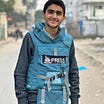
WAKE UP WORLD!!!
NO MORE BLAH BLAH BLAH AT THE SECURITY COUNCILS.
SEND IN PEACE KEEPING TROOPS FROM THE UNITED NATIONS.......WITH FOOD AND MEDECINE!!
"Two days earlier, another airstrike hit near the gate of Al-Aqsa hospital, killing my cousin Salman Abed and his son, Mahmoud. Then on Sunday, a separate airstrike in Khan Younis killed 10 more members of my family, including my aunt, another cousin, her husband and six children."
May God bless you and reward you -- and the doctors, nurses, journalists -- who continue to bravely serve others despite the horrors visited upon all of you by the Israeli bombardment and its war crimes.
We offer you are our prayers, our gratitude, and our promise to do what we can to stop our nation from supplying more weapons to Israel.